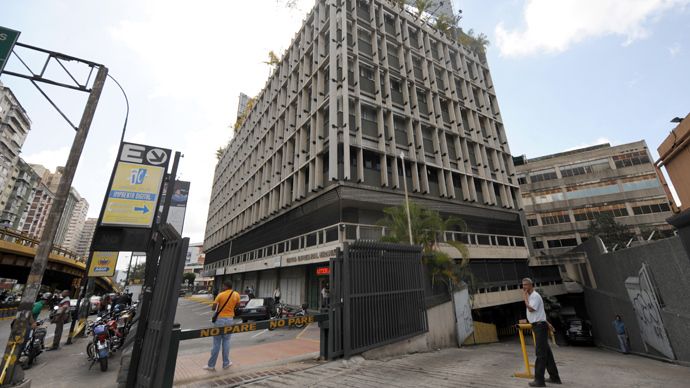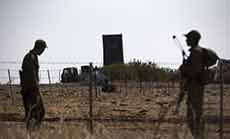Eye on the Enemy: A blow to Aquatic Energy Sources of ’’Israel’’

The IDF has been trying to improve its performance if hostilities resume, but so has Hizbullah. The Shi'ite organization has built fortified lines with underground command posts and improved operational capacity. Its rockets are hidden in better-camouflaged launching pads.
"Our dogs know how to spare civilians and home in on terrorists," says Sivan, a
No Intention to Target Cells in Sinai, Even If Dangerous
Walla News
How will "Israel" defy the firing of rockets on the south of the country, from Egypt?
This evening (Sunday) a high-ranking source in the army said that if they'll identify a "terrorist" cell preparing to fire to the south of the country," there is no authentication at all towards the launchers of missiles in Sinai".
In the army, they fear that the soldiers will be facing a deadlock in case they exposed "terrorists" in the Sinai region preparing for a rocket fire to ""Israel"", because of the absence of clear orders. Accordingly, they explained: "There is no intention of bombing a cell of rocket launchers, even if we located them. We won't go this far. Had the rocket fire situation continued to exist in the area of Sinai, this will require us have a broadest estimate of the situation. In real time, we are heading to Egypt and possibly we will impose pressure through the Americans. However, the source explains, "The city of Eilat cannot endure such "terrorist" attacks".
But can you rely on the Egyptian police, in its current state? According to the source the collaboration with the army and the Egyptian government is still well-maintained. A senior source in the organization depicted the relations with Egypt as a "nice", but stressed that they, in "Israel", did not send any threatening letter to the Egyptians after the shooting. "We are not in the location that allows us to ask the Egyptians to do a considerable work. We are not satisfied with the way they are dealing with "terrorist" cells in Sinai."
In security services, they hope, Omar Suleiman, Egypt's former intelligence chief, and the right hand of ousted President Hosni Mubarak, to be elected as the head of state. Suleiman had broad relations in "Israel", in particular with the Minister of Defense Ehud Barak and the head of political security committee in the Defense Ministry, Amos Gilad. They are discussing at the security services the close ties between Suleiman and the commander to be of Air Force, Major General Amir Eshel, since the latter was head of the Planning Division.
Head of Intelligence Division, Maj. Gen. Aviv Kochavi addressed the issue of the rocket fire, at the end of the week. Kochavi said in the closing ceremony of training of intelligence officers, "the Middle East, the place where the frequency of weapon race us the largest in the world, changed its destination and nature randomly. Perhaps the winds of change might be positive, but on the short and medium term, it holds many risks. The bombings that fell on Eilat from Sinai, is only a reflection of the fundamental change going through the region. "
A blow to Aquatic Energy Sources of "Israel"
"Israel" Defense - Gideon Raz
"Israel" has a basic message that cannot be abandoned, and must be searched for. They need to control the areas of economic waters of the State of "Israel", analyze the threat found in this arena, and find the right solutions that must defy those threats. The State of "Israel" with its army i.e. navy forces must consolidate its presence in this arena, show that its sovereignty cannot be waived, and at the same time, it should form a control and supervision system in which it is possible to detect any suspicious activities in addition to building the capacity to respond when detecting any direct threat.
Over the years, the navy forces developed in collaboration with industry sector effective control and monitoring capabilities along the coast of "Israel", in addition to the formation of a naval special forces. The presence of extraction systems of natural gas in the sea needs the harmonization of formations, especially the nature of the forces and its organization in order to allow a continuous presence in the region. In the context of the article the incident of targeting the battleship "Hanit" by a rocket Beach - Sea of "C-802" was mentioned. It is important to indicate to readers that the ship was equipped, during the incident, with systems of anti-missile that were supposed to thwart the attacking rocket , but it did not work for reasons that cannot e discussed now. According to my information there were lessons learned from this incident in the navy.
The underwater capabilities of the Iranian navy are confirmed to exist. I referred to the valuable capacities achieved by the navy in the field of control systems over the water surface. According to my estimates we have to expect that the enemy (Iran) will try exploring ways to reflect the capabilities of the submarines it owns, including very small submarines. As it is prohibited to consider the borders of the Persian Gulf as a barrier the Iranians will not trespass. So, underwater systems of detection and diagnosis must be established. Technology existed since the Cold War between the United States and the Soviet Union, and it has grown immeasurably with the passage of time.
Starting from next year, the "Israeli" economy will be built on a regular stream of natural gas from offshore wells, and any blow to the natural gas supply systems will lead to significant damage to the economy and way of life in "Israel" and our enemies understand this very well.
Special IDF units preparing for mass Lebanon incursion if war breaks out with Hizbullah
Haaretz, By Gili Cohen
Ground forces are expected to contribute much more than in 2006, when "Israel' relied mainly on the IAF, which would entail much more intense urban warfare.
Almost six years after the Second Lebanon War, special "Israeli" units are preparing to take part in mass incursions into Lebanon if another round of fighting with Hizbullah breaks out. Just as important, they are being trained to heed the legal implications.
Officers say the "Israel" Air Force would destroy targets like training bases and rocket-launching pads within a few days, based on the intelligence gathered by the "Israel" Defense Forces. But this would not be enough, so a ground offensive would be necessary.
A training exercise for canine and human members of the Oketz unit last week.
A training exercise for canine and human members of the Oketz unit last week.
"When you stick an [Israeli] flag [on enemy territory], there's no question who won," says a high-ranking officer who requested anonymity. "You need to seize a geographic space. This is the only way the concept of victory can be established."
The ground forces are therefore expected to contribute much more to the war effort than in 2006, when "Israel" relied mainly on the IAF. This would entail much more intense urban warfare, with many civilians caught in the crossfire, and the attendant legal implications.
"Everything that we've seen with the flotillas, Operation Cast Lead and the implications in terms of international law have left a strong impression on us," says Lt. Col. Sahar Abergil, commander of the special elite unit Yahalom. That unit specializes in bunker warfare and is likely to carry much of the military burden.
"I hope we'll take [international law] into account during the fighting," Abergil says.
Yahalom soldiers, along with the men and dogs of the IDF's Oketz canine unit, finished a long training session last week.
"It's not patrols or raids on Palestinians we're simulating here, but a full-fledged war," says Oketz's commander, who gave his name as Sivan.
One of Oketz's main tasks is to distinguish between militants and uninvolved civilians.
captain. "How do they? That's our secret."
When closing in on a house where the enemy is thought to be hiding, the soldiers must order everyone to exit. Those who don't come out are considered suspects, and the dogs soon get an order to attack.
According to Abergil, "Our goal is that the dogs won't take on civilians. "That's why we include pretend civilians in our drills, to show the soldiers that there are no hard-and-fast rules."
He says the soldiers also discuss moral dilemmas that may have legal ramifications. For example, they are expected to cope if a woman wearing a coat and a little boy approach their post.
"Do they open fire? Do they shout? Do they wound them? Our soldiers understand that it might be a terrorist cynically exploiting a 5-year-old boy, and they're supposed to try to find indications," says Abergil.
"Could she be deaf? Or maybe blind and she's being led by the boy? The army's encounter with a civilian population is never simple, and there's no way to master it fully. We're trying to instruct the soldiers to use their discretion and common sense. At the end of the day, this is war."
Source: Hebrew Press, Translated and edited by moqawama.org




